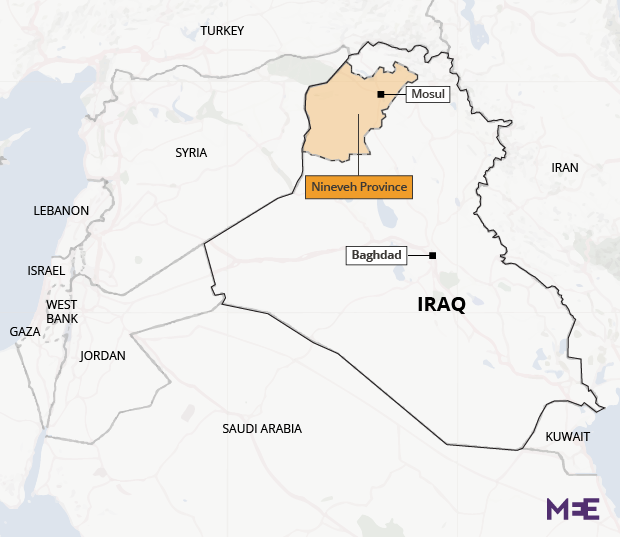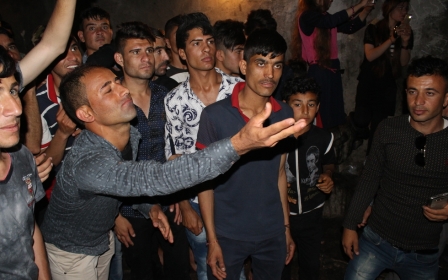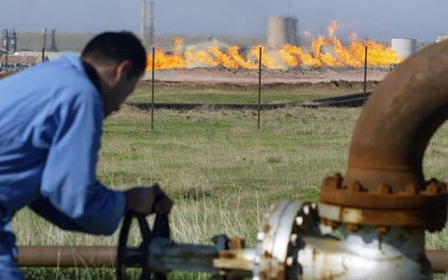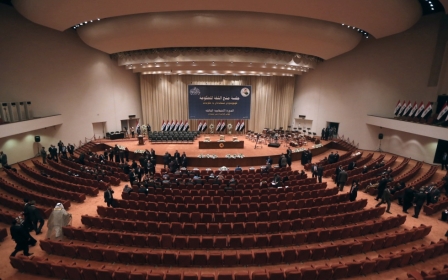The lost generation of Iraq's Nineveh province
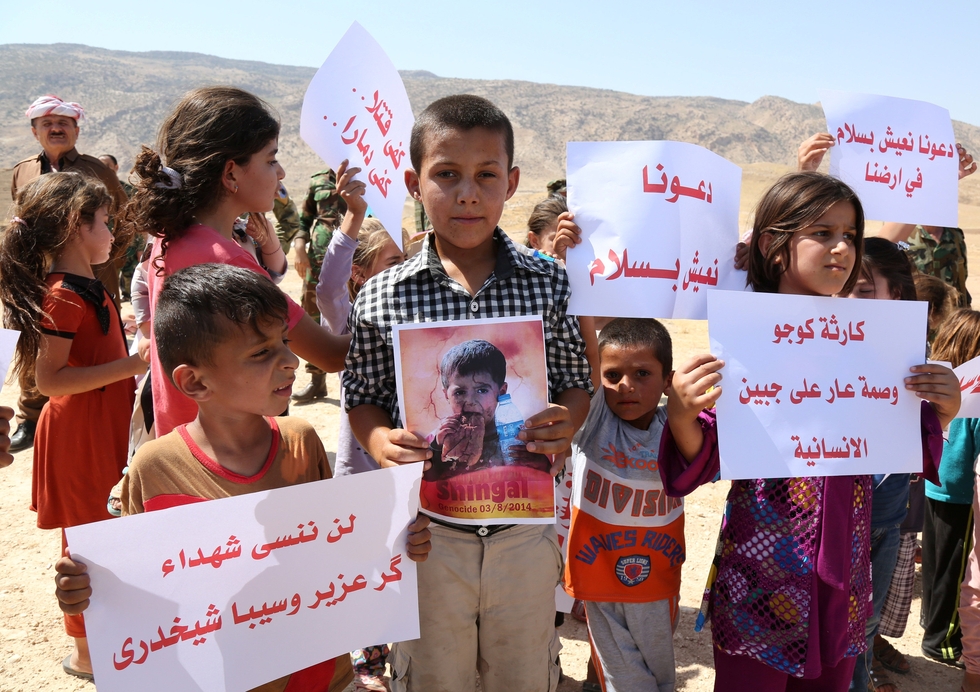
On 10 June 2014, militants of the self-proclaimed Islamic State (IS) conquered the city of Mosul, the capital of Iraq’s Nineveh province.
By mid-August 2014, IS militants also controlled nearby areas, including the city of Tal Afar, the population of which is mostly Turkmen; the Sinjar Mountains, home to the Yazidi people; and the Nineveh Plains region, which is mainly inhabited by Assyrian Christian and Shia Shabak communities.
IS's rapid expansion between June and August 2014 revealed the incapacity – or strategic unwillingness – of the Shia-aligned Iraqi government led by then prime minister Nouri al-Maliki to protect Iraqi civilians in the Nineveh province, which became an epicentre of Sunni insurgency following the 2003 US-led invasion of Iraq.
Furthermore, IS's June-August 2014 campaign revealed the unique threats to Iraqi ethnic and religious minorities.According to the Simon-Skjodt Centre for the Prevention of Genocide's latest report, between June and August 2014, IS militants targeted Iraqi civilians based on group identity.
Moreover, the authors of the report argue that IS militants perpetrated genocide against the Yazidi people, and committed crimes against humanity, ethnic cleansing and war crimes against other Iraqi minorities in the Nineveh province.
Two years later, IS continues to present a serious threat to Iraqi minorities.
All systems fail
In a June report titled "They came to destroy": ISIS Crimes Against the Yazidis, the independent international commission of inquiry on the Syrian Arab Republic – mandated by the UN Human Rights Council to investigate and record all violations of international law since March 2011 in Syria – argued that IS militants are committing genocide and other war crimes against the Yazidi people.
The international community has failed to address the crimes against humanity and war crimes committed by many parties during Syria's civil war
In addition, the panel found that more than 3,200 Yazidi women and children were being held as sex slaves and child soldiers by IS fighters, mostly in neighbouring Syria, which is immersed in a five-year-old civil war.
Unfortunately, the international community has failed to address the crimes against humanity and war crimes committed by many parties during Syria's civil war, as well as the crime of genocide against the Yazidi people in Iraq.
“The crime of genocide must trigger much more assertive action at the political level, including at the [UN] Security Council,” Paulo Pinheiro, chair of the commission, said in June, calling for the case to be referred to the International Criminal Court (ICC) in the Hague or to another international tribunal.
In fact, the commission has repeatedly made this recommendation, but no action has followed from the UN Security Council, in which Russia – a permanent member, and the closest ally of the Syrian regime led by President Bashar al-Assad – wields a veto.
“Nothing has been done to save these people, and we hope for stronger action by the international community,” Pinheiro said, highlighting the obligation for countries under the 1948 Convention on the Prevention and Punishment of the Crime of Genocide to take action to prevent genocide from happening.
So far, the state parties of the convention have not met their obligations, contributing to the loss of a generation in the Nineveh province.
Will the Iraqi government and the international community have the capacity and the sustained political will to protect these minorities?
Risk of continued violence
The near future of at-risk minorities in the Nineveh province depends on the resolution of the administrative status of the disputed territories of northern Iraq, the creation of an accountable security sector, and the reduction of sectarianism within the Iraqi government and its security forces.
Today, parts of the Nineveh province are regarded as Disputed Internal Boundaries areas (DIBs) under the Iraqi constitution. Since 2003, both the Iraqi government, now led by Haider al-Abadi, and the Kurdistan Regional Government (KRG) have been competing to control those areas – in addition to the oil reserves near Kirkuk.
The status of these areas was supposed to have been resolved in 2007, yet it remains a point of contention between the Iraqi government and the KRG.
The risk of further violent conflict remains high as long as there is no resolution between the Iraqi government and the KRG for the disputed status of these areas, many of which are under IS control at the time of writing.
To each, his own
This territorial dispute has contributed to a chronic under-resourcing of the Nineveh province, with many areas lacking in basic services and the creation of a security vacuum.
In turn, this vacuum has contributed to the proliferation of armed actors, and generated growing support for extremist groups such as IS.
In the absence of security afforded by the Iraqi government or the KRG, civilians have created armed militias, mainly ethnic and religious self-defence forces, each focused on its own interests.
Even if they do not sympathise with the group's ideology, many Sunnis have also joined IS's ranks.
Human rights organisations have repeatedly concluded that the Iraqi army and its allied Shia militias have committed human rights violations and war crimes in the process of recapturing IS-held territories, which are home to Sunni Iraqis.
This situation, in which both state and non-state armed actors have little oversight or accountability for their actions, has ignited existing sectarian tensions.
Until the Iraqi government can guarantee that its security forces and affiliated militias abide by international human rights and humanitarian law, and are held accountable for any violations, Sunnis will continue to distrust Iraqi national institutions.
Furthermore, without guarantees from the Iraqi government and the KRG on a process integration of Sunni civilians into state organisations, including the Iraqi army, the Sunni population in the Nineveh province will continue to distrust the Shia-dominated Iraqi army and its allied Shia militias, as well as the Kurdish Peshmerga, and conceive of IS as a plausible security provider.
The lost generation
For decades, the Nineveh province has been subject to demographic manipulation. Its ethnic and religious minorities have been the targets of a historical process of forced Arabisation, human rights violations, and mass atrocities.
The minorities of the Nineveh province continued to be the target of mass atrocities following the 2003 US-led coalition’s overthrow of the Sunni-dominated Baathist regime led by Iraqi President Saddam Hussein.
In the absence of a peace-building strategy to complement military operations against IS, the province's minorities will continue to be at risk of violence, particularly after the recapture of Mosul, which will likely generate a new security and humanitarian crisis.
To avoid the loss of another generation, Iraq must abide by its obligations as a party to the 1948 UN Genocide Convention, and formally accept the Rome Statute of the International Criminal Court (ICC).
Iraq must also enact comprehensive legislation criminalising genocide, and pursue prosecutions for alleged perpetrators that adhere to internationally recognised legal standards.
The international community must encourage the UN Security Council to refer the situation in Iraq to the ICC, and provide assistance to the Iraqi government, the Kurdistan Regional Government, and Iraqi local civil society organisations to gather evidence of atrocities – including genocide, crimes against humanity, and war crimes – perpetrated by IS and other armed groups.
- Tania Ildefonso Ocampos is a Spanish political analyst who specialises in EU strategy in the Middle East. She is a former Schuman trainee (Euro-Med and Middle East Unit of the European Parliament's Directorate-General for External Policies), and holds an MA in Middle Eastern History from Tel Aviv University, Israel.
The views expressed in this article belong to the author and do not necessarily reflect the editorial policy of Middle East Eye.
Photo: Yazidi children holding signs are seen near Sharaf Al-Deen temple in Shingal's outskirts, Iraq, 14 August 2016. The signs read, "Let us live in peace" (top R), "Kojo's disaster is a disgrace on all of humanity" (R) and "We won't forget Gu Azeez, Seeba and Sheekhadra" (L). (Reuters/Ari Jalal)
This article is available in French on Middle East Eye French edition.
New MEE newsletter: Jerusalem Dispatch
Sign up to get the latest insights and analysis on Israel-Palestine, alongside Turkey Unpacked and other MEE newsletters
Middle East Eye delivers independent and unrivalled coverage and analysis of the Middle East, North Africa and beyond. To learn more about republishing this content and the associated fees, please fill out this form. More about MEE can be found here.



